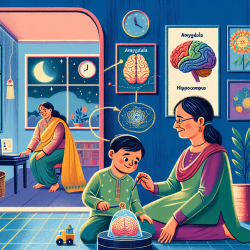As practitioners in the field of healthcare, particularly those involved in maternal and child health services, understanding patient experiences is crucial for improving service delivery. A recent qualitative study titled “Even though they insult us, the delivery they give us is the greatest thing” provides valuable insights into women's experiences with facility-based maternal health care in Ethiopia. This study uncovers the nuances of patient satisfaction and expectations, offering lessons that can be applied to enhance healthcare practices globally.
Understanding Patient Satisfaction Beyond Clinical Outcomes
The research highlights that maternal and newborn survival are central to women’s descriptions of their healthcare experiences. Women often equate successful deliveries with satisfaction, even when faced with interpersonal challenges or inadequate facilities. This underscores the importance of not only focusing on clinical outcomes but also understanding the broader context that shapes patient satisfaction.
For practitioners, this means recognizing that while clinical success is vital, the way care is delivered—through communication and support—plays a significant role in patient satisfaction. Incorporating supportive communication and demonstrating commitment can enhance patient experiences significantly.
The Role of Cultural Context and Expectations
The study emphasizes how cultural and contextual factors influence women's expectations and experiences. Past experiences with antenatal care, social influences, and community support all contribute to shaping a woman’s perception of quality care. Practitioners should consider these factors when designing and implementing healthcare services.
Understanding cultural nuances can help practitioners tailor their approach to meet the specific needs and expectations of patients. This might involve training staff to be culturally sensitive and aware of local customs and beliefs that impact healthcare delivery.
Improving Interpersonal Interactions
Interpersonal behaviors of healthcare providers significantly impact women's experiences. Supportive communication and emotional support are crucial elements that enhance patient satisfaction. Practitioners should focus on building trust through effective communication and ensuring that patients feel cared for beyond their medical needs.
This can be achieved by fostering an environment where patients feel comfortable expressing concerns and where providers actively listen and respond empathetically. Training programs focusing on interpersonal skills can be beneficial for healthcare staff.
The Importance of Facility Conditions
While clinical outcomes are paramount, facility conditions also play a role in shaping patient satisfaction. Cleanliness, privacy, and access to basic amenities like water and food contribute to a positive experience. Practitioners should advocate for improvements in facility conditions to ensure they meet basic standards that support patient dignity and comfort.
Leveraging Social Support Systems
The study also highlights the importance of social support systems in enhancing maternal healthcare experiences. Family support and community resources can buffer against negative experiences in under-resourced facilities. Practitioners should encourage the involvement of family members in the care process where appropriate and facilitate access to community resources.
Encouraging Further Research
This study opens avenues for further research into understanding how different factors influence patient satisfaction across various contexts. Practitioners are encouraged to engage in or support research initiatives that explore these dynamics further. By doing so, they can contribute to developing more effective strategies for improving maternal health services globally.
To read the original research paper, please follow this link: “Even though they insult us, the delivery they give us is the greatest thing”: a qualitative study contextualizing women’s experiences with facility-based maternal health care in Ethiopia.










